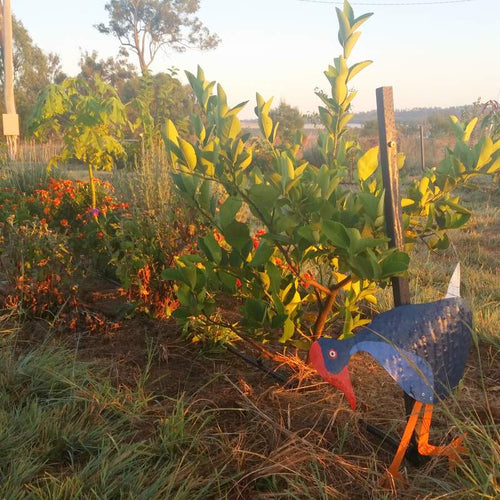How I use herbs - nasturtium
I was surprised to find out that there is actually a genus Nasturtium which includes cress, but not the plant I know as nasturtium! Apparently the common name nasturtium for the plant Tropaeolum Majus is due to the herb tasting like plants in the Nasturtium genus. Another example of why its so important to check botanical names.
How to grow nasturtium
Nasturtium can be grown from seed, cuttings or root division, although I've only ever used seeds. It does tend to spread under the right conditions, so make sure you plant it in the right spot. I find it doesn't like our hot dry summers, so it never takes over my garden. However, if I can get it to survive through summer, it is a perennial in my sub-tropical climate. It is usually considered an annual in colder climates as it doesn't tolerate frost well.
How I use Nasturtium
- All flowers are good for attracting bees and other beneficial insects, so this is a good reason to have nasturtium in your garden, as it tends to flower prolifically in the right conditions.
- Nasturtium is also used as a companion plant as the leaves attract insects, particularly the cabbage white moth. The flowers also repel aphids and the cucumber beetle.
- It makes a good edible ground cover plant in the orchard for weed control.
- The flowers, seeds and leaves can be eaten. I usually pick a few leaves and add to dinner with other chopped herbs. The leaves have a peppery flavour which I like. I know that you can also pickle the green seeds, but I can never produce enough of them!
- Medicinally, nasturtium is said to have antibiotic properties. It can be made into an infusion or tincture for respiratory conditions, digestion and as a poultice for skin conditions.
- Chooks and cattle also enjoy any nasturtium that grows outside the garden fence.
See my other herb posts: mint, aloe vera, basil, ginger, galangal and turmeric, calendula, marigold and winter tarragon, soapwort, comfrey
Do you grow and use nasturtium in your garden?
Do you grow and use nasturtium in your garden?























Leave a comment